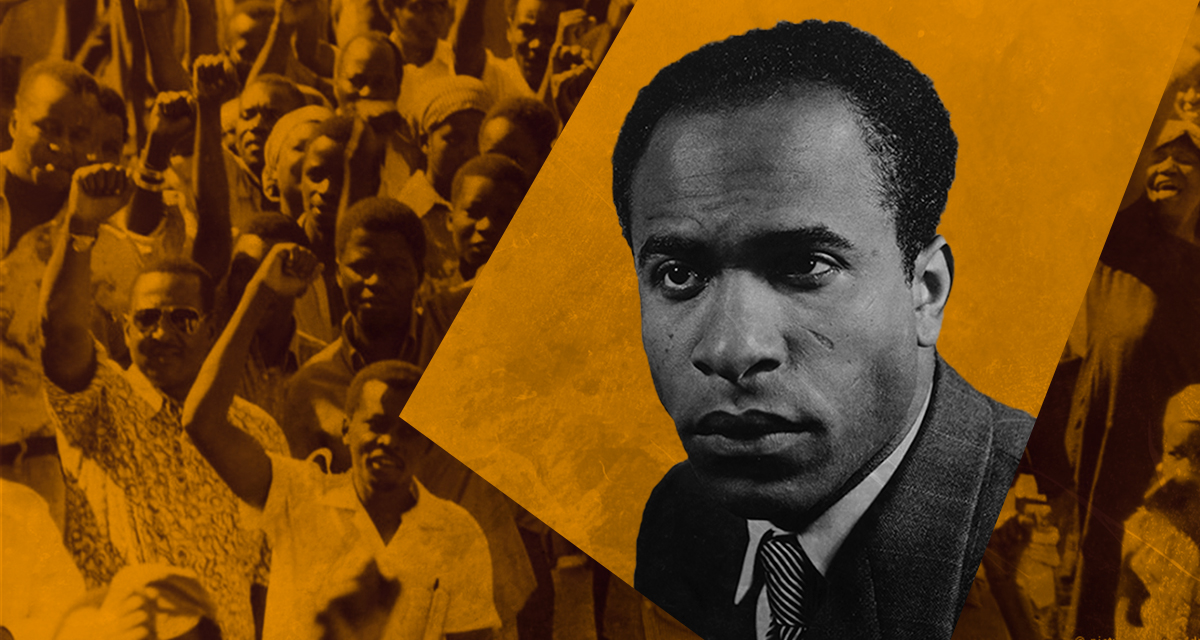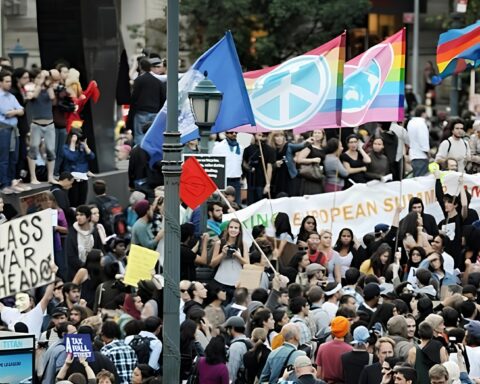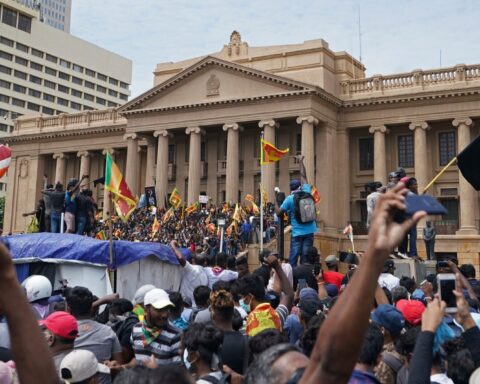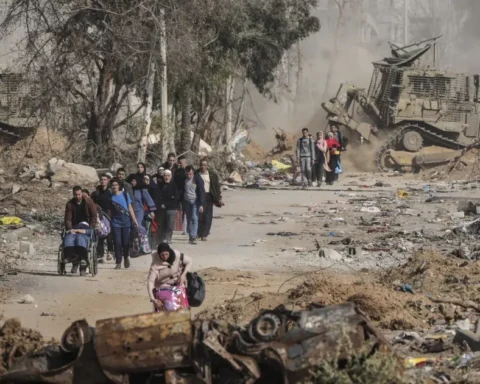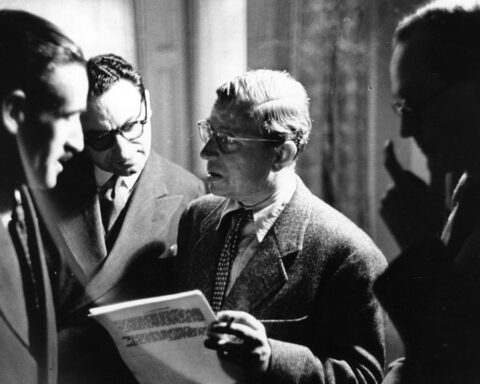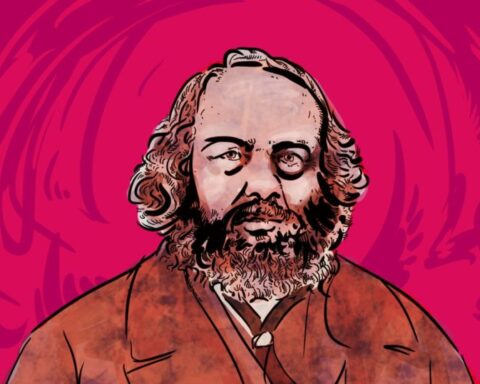The philosopher, psychiatrist, and revolutionary militant Frantz Fanon was a key figure in the struggle against European colonialism. Fanon’s innovative thinking on racism and its relationship to class oppression still speaks vividly to the present.
Τhe renewed protests against racism and police brutality over the last years have supplied a fresh impetus for thinking about the nature of capitalism, its relationship to racism, and the construction of alternatives to both. Few thinkers speak more directly to such issues than Frantz Fanon, the Martinican philosopher, psychiatrist, and revolutionary who is widely considered one of the twentieth century’s foremost thinkers on race and racism.
Fanon had direct experience of French colonial rule, from the Caribbean to North Africa, and brought that experience to bear on his intellectual work. He played an active role in the Algerian revolutionary movement that struggled for independence in the 1950s, but he warned that independent African states would simply replace the colonial system with a national bourgeoisie unless they followed the path of social revolution.
Some of Fanon’s key works have been available in English translation for many years. However, the recent publication of over six hundred pages of Fanon’s previously unavailable writings on literature, psychiatry, and politics makes this a fitting moment to reexamine his thought anew.
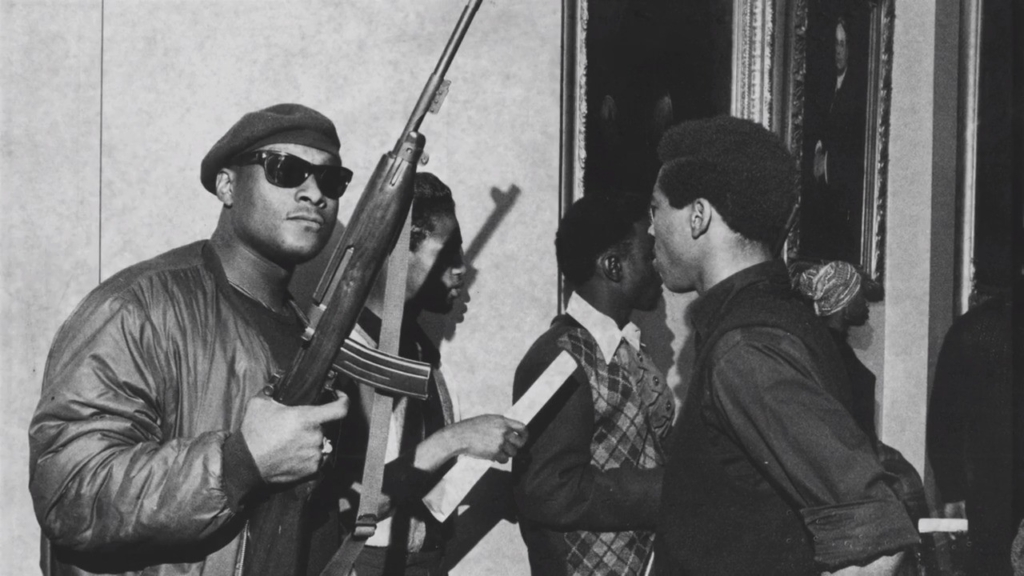
Denaturalizing Racism
Born in 1925, Fanon grew up in French-ruled Martinique in the Lesser Antilles. He originally thought of himself — as was true of many others at the time — as French and not “Black.” That began to change when he enlisted as a soldier in the Free French Forces during World War II. The experience brought the racism of French “civilization” painfully home to him.
Returning to France in the late 1940s, Fanon immersed himself in the literature of Négritude, a French-speaking black pride movement. At the same time, he absorbed the latest European intellectual developments such as phenomenology, existentialism, psychoanalysis, and Marxism. This led to his first book, published in 1952 when Fanon was only twenty-six: Black Skin, White Masks.
Fanon’s great breakthrough in Black Skin, White Masks was to analyze racism in sociogenic terms, denying it any natural basis. Skin color may be biologically determined, but the way that we see and interpret it is conditioned by social forces which are outside of our control.
This phenomenon is so pervasive that race and racism come to appear as “natural,” transhistorical phenomena. For Fanon, such mystification cannot be stripped away by mere enlightened critique since it is deeply rooted in objective social realities and must be challenged at that level.
In recent decades, the “social construction of race” has become such a cliché that the radical implications of Fanon’s theoretical breakthrough are easy to miss. If race is socially constructed, it follows that specific social relations are responsible for its birth and perpetuation. What might those relations be? Fanon insists that they are economic:
The true disalienation of the black man implies a brutal awareness of the social and economic realities … the Black problem is not just about Blacks living among whites, but about Blacks exploited, enslaved, and despised by colonialist and capitalist society that happens to be white.
However, this did not mean that race is secondary to class, or that the struggle against racism was subordinate to the fight against capitalism. A phenomenon is not exclusively defined by its origin. Racism takes on a life of its own and defines the mental horizons of individuals long after some of its economic imperatives have faded from the scene. Fanon therefore insisted that “the black man must wage the struggle on two levels,” objective and subjective. Any “unilateral liberation is flawed, and the worst mistake would be to believe their mutual dependence automatic.”
Unfortunately, that “mistake” characterized the dominant forms of Marxism in Fanon’s time: they saw racism as (at best) a secondary consideration, while failing to produce a credible Marxist theory of racialization. For this reason, despite his firm opposition to capitalism, Fanon never associated with any existing Marxist tendency. As Sylvia Wynter summarizes Fanon’s novel position: “A solution will have to be supplied both at the objective level of the socioeconomic, as well as at the level of subjective experience, of consciousness, and therefore, of ‘identity.’”
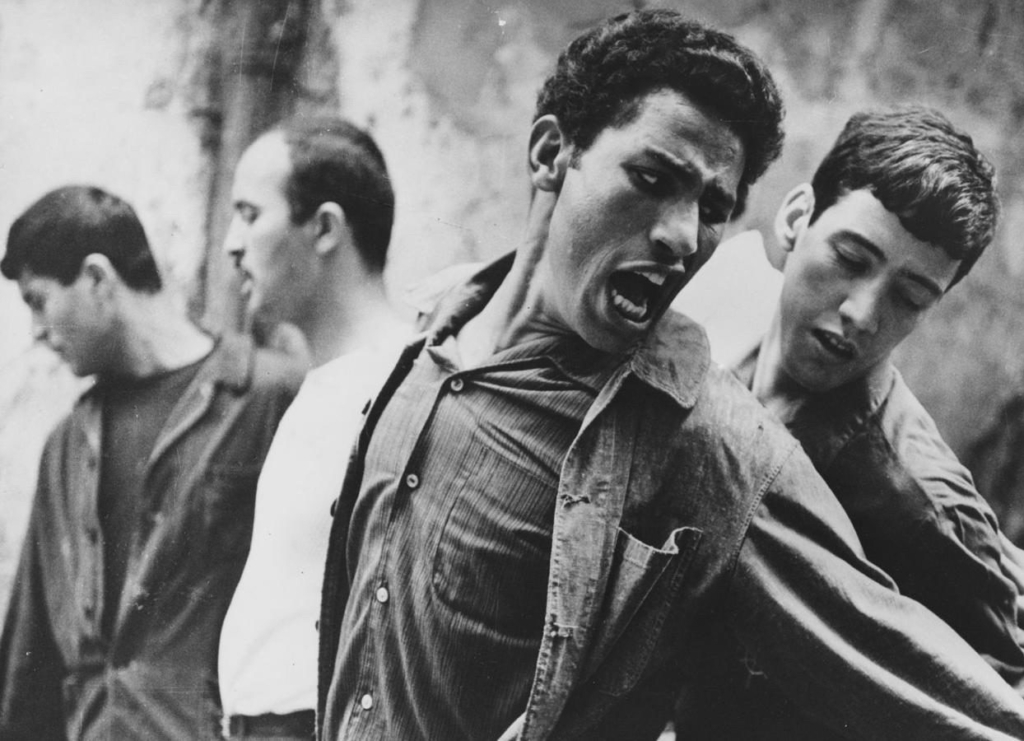
From Object to Subject
For Fanon, the positive affirmation of identity was a critical moment in the development of self-consciousness. The liberation of black people as subjects hinged on the recovery of a sense of selfhood and dignity that has been robbed from them by the “white gaze.” Taking pride in the racial attributes denigrated by society in people of color would be a crucial way of challenging the naturalization of social relations that underpins racism.
Fanon developed this perspective through a critical engagement with Hegel’s Phenomenology of Spirit. He argued that mutual recognition was impossible in a society defined by the racial gaze, since it meant that people of color were viewed as things: “I found that I was an object in the midst of other objects.”
This was the central issue for Fanon: racism does not merely deprive its victims of economic resources and social status. It also dehumanizes and depersonalizes them, leaving Blacks to “inhabit a zone of non-being, an extraordinarily sterile and arid region, an incline stripped bare of every essential from which a genuine new departure can emerge.” This produced an inferiority complex, a sense of lesser human worth. Those he called the “wretched of the earth” could transcend this only by securing recognition of their humanity, based on a positive affirmation of their racial or national characteristics.
Recognition is a much-misunderstood term in Fanon’s work. In modern political thought the phrase “politics of recognition” refers to mutual acknowledgement of the “equal rights” of citizens. All contractual relations, whether in politics or economics, involve recognizing the rights of the other party. Fanon did not speak of recognition in this sense at all.
He had no illusion that racism could be overcome by pleas for formal equality, since as he saw it, people of color were not perceived to be fully human and were thus written out of the social contract. He criticized those who sought recognition within existing society, viewing this as an effort to “become white,” whose practitioners remained subject to an inferiority complex.
Fanon aimed for a much deeper kind of recognition, one that would acknowledge the human dignity and worth of the marginalized and oppressed. Achieving that goal, he boldly stated, “implies restructuring the world.”
Fanon’s approach therefore offers an alternative to the way that debates on race, class, and identity often line up in the left today. He opposed the kind of abstract revolutionism that conceived of the proletariat as the guarantor of liberation while downgrading the importance of the struggle against racism. He also rejected the version of identity politics that looked for self-expression and solace within the structure of existing capitalist relations. This was especially evident in his work as a psychiatrist.

Sociotherapy
Fanon began studying psychiatry in Lyon in the late 1940s, and he originally submitted the text of Black Skin, White Masks as his PhD dissertation in 1951. His academic supervisors quickly rejected the work for its unconventional content. Fanon responded by turning in a technical study on the psychiatric implications of Friedreich’s Ataxia — a neurological degeneration of the spinal column.
The dissertation, which has only recently been published in English, is the last place one might expect to find a discussion of social relations. Yet Fanon’s insight on the sociogenic character of racism shone through here as well. He insisted that mental illness, while it might have organic origins, was “always psychic in its pathogeny.”
Fanon refused to reduce even neurological illnesses to their biological component. He was interested in the psychic toll they took on the living individual, guided in his approach by an implacable humanism:
The [individual] human being ceases to be a phenomenon from the moment that he or she encounters the others’ face. For the other reveals me to myself. And psychoanalysis, by proposing to reintegrate the mad individual within the group, establishes itself as the science of the collective par excellence. This means that the sane human being is a social human being: or else, that the measure of the sane human being, psychologically speaking, will be his or her more or less perfect integration into the socius.
This perspective would guide Fanon over the next eight years in the time he spent working at a series of psychiatric clinics, first in France, then in Algeria and Tunisia, where he practiced — initially under the tutelage of François Toquelles — “sociotherapy.” This meant liberating patients from prison-like conditions and seeking to integrate them into society.
Fanon and his colleagues made use of techniques such as occupational therapy, having patients produce newspapers and plays, and allowing them to freely associate with each other in the institution. In the course of this work, Fanon was still prepared to administer pharmaceutical drugs, and he even deployed shock therapy. But he did so while seeking to create a humanist environment that treated the patient as a person.
An openness to human possibilities grounded this approach, both in Fanon’s work as a psychiatrist, and in his later role as a revolutionary activist. His dissertation quoted a comment from Jacques Lacan:
There is an essential discordance within human reality. And even if the organic conditions of intoxification are prevalent, the consent of freedom would still be necessary.
If an “essential discordance” defines our nature, it cannot be overcome; in this perspective, alienation must be viewed as an integral part of human existence. Fanon responded by asking: “Would it not be better to leave open a discussion that involves the very limits of freedom — that is to say, of humanity’s responsibility?”
The opening pages of Black Skin, White Masks contained a vivid declaration: “Man is a ‘Yes’ resounding from cosmic harmonies.” Fanon conceived of freedom as a “world of mutual recognitions,” insisting that a desire “to touch the other, feel the other, discover each other” was an essential part of humanity’s very being.
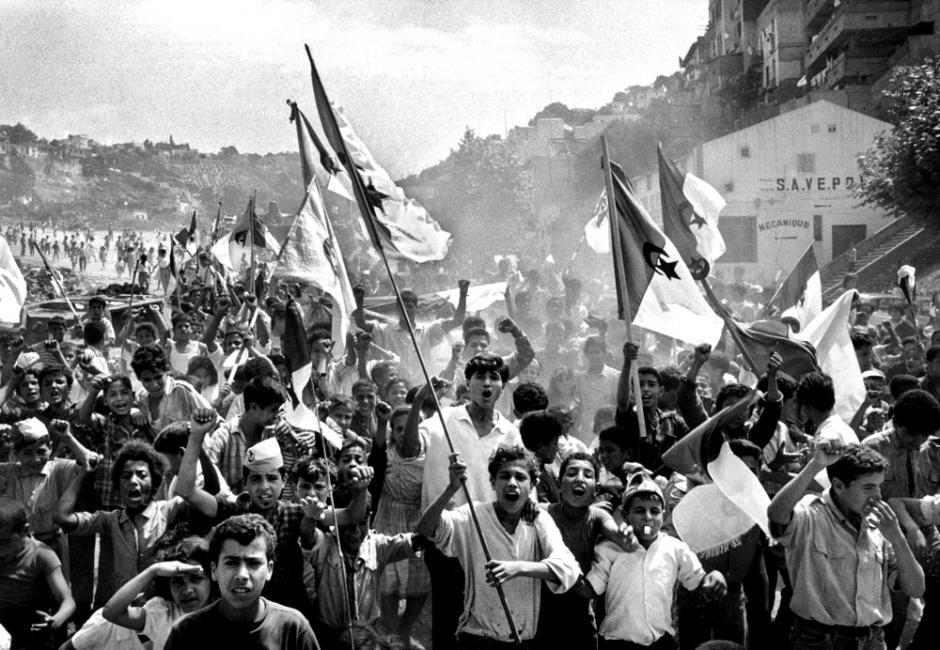
The Algerian Revolution
After practicing psychiatry for several years in France, Fanon moved to Algeria in 1953, where he took up a position at the Blida-Joinville hospital, outside of Algiers. He did not make this move for political reasons, knowing little of Algeria at the time, and having had minimal contact with African liberation movements.
Fanon quickly discovered a “Manichean” society where the French settlers, about 10 percent of Algeria’s population, lived in a different world from its Arab and Kabyle masses. The latter were subjected to discrimination that was far more brutal than anything he had experienced in the Antilles. When the Algerian revolution broke out in November 1954, led by the newly formed National Liberation Front (FLN), Fanon embraced the movement’s aims and its advocacy of armed struggle.
Fanon now combined his psychiatric work with involvement in a revolutionary movement. He secretly hid FLN militants in the hospital and provided therapy to victims of rape and torture. He also became increasingly active in political debates within the FLN.
However, the links between Fanon’s psychiatry and his politics ran deeper than this. As Robert Young has observed, Fanon drew an analogy between societies under colonial rule and mental patients in need of treatment:
The revolution was the necessary form of shock that would enable the reconstruction of the colonized society . . . Fanon’s politics of freedom were closely modeled on, and derived from, his therapeutic practice.
Fanon conducted a series of detailed studies of Algerian society and culture in the 1950s, discussing the role played by religion in Muslim countries, the radically different sense of time that distinguished North Africans from Europeans, and the way that family and clan communities in Algeria were increasingly defining themselves by reference to a broader national community.
He looked in particular at the frequent refusal of the colonized to confess to having committed a crime, even in the face of clear evidence of their guilt:
We might be able to approach this ontological system that escapes us by inquiring whether indigenous Muslims really think of themselves as engaged in contractual agreements with the social group that now exerts power over them. Do they feel bound by the social contract? . . . what would the significance be of the crime, trial, and sentence if they did not?
As Fanon pointed out, confession depends on prior recognition, something that was missing in the colonial context: “There can be no reintegration if there has not been integration.” Since the social contract excluded the colonial population, they felt no obligation to abide by its legal or juridical norms.
The refusal to confess, he concluded, was an act of revolt. The failure of the system to recognize the humanity of colonized people impelled them to press for the complete uprooting of existing institutions, not mere reforms. The colonized subject — from the Arabs and Kabyles in Algeria to Blacks in sub-Sahara Africa or Black Americans in the US — would therefore be the vanguard force in battles for social transformation, according to Fanon.
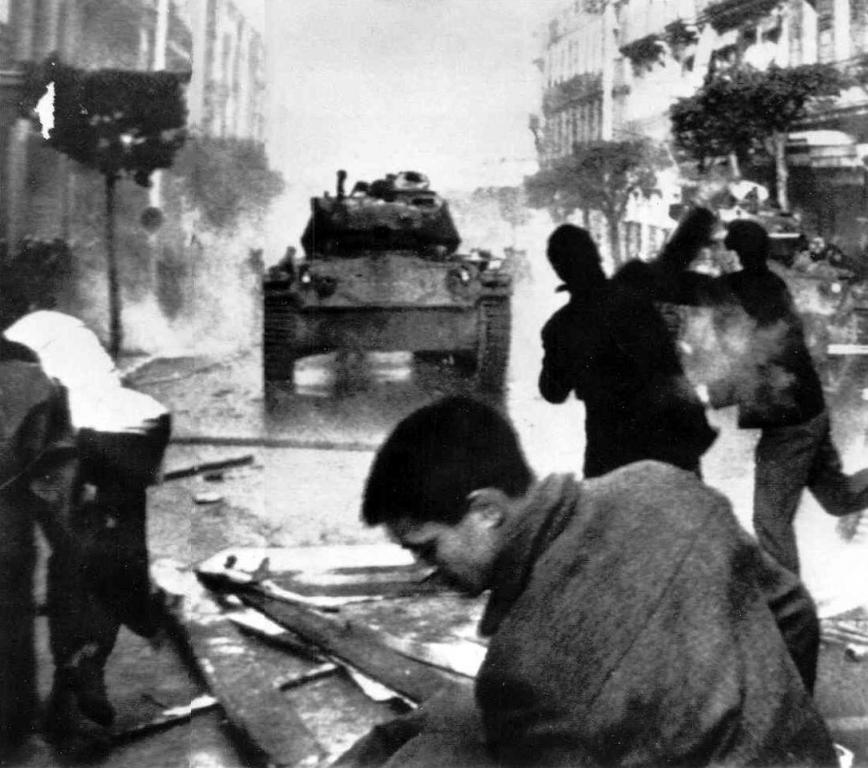
Stretching Marxism
Fanon contrasted the revolutionary praxis of the colonized with the passivity and betrayals of the European Left. The French Socialist and Communist Parties supported the war of French imperialism against the Algerian revolution, which led to over half a million deaths.
A Socialist premier, Guy Mollet, presided over the violent clampdown in Algeria, while the Communist deputies in the French parliament voted in favor of war credits, despite their formal commitment to Leninist anti-colonialism. With the important exception of figures such as Jean-Paul Sartre, there was little active support for Algeria’s revolution from even the most radical sections of the European Left. This led Fanon to become increasingly critical of the paradigm that defined much of Western thought.
These considerations were central to Fanon’s last and most famous book, The Wretched of the Earth. He began writing the book after learning that he had incurable leukemia and died shortly after it appeared in 1961. Scholars often overlook the fact that The Wretched of the Earth does not completely turn its back on Europe. Instead, Fanon set out to critically rethink dimensions of European thought, including Marxism.
Fanon insisted that a Marxist analysis “should always be slightly stretched when it comes to addressing the colonial issue.” In Marx’s analysis of capitalist accumulation in Europe, the development of capitalism had torn peasants from the “natural workshop” of the land and transformed them into urban proletarians, who in turn would become a massive, compact, and revolutionary force through the concentration and centralization of capital. Fanon saw that this process was not being repeated in Africa.
The destruction of the continent’s traditional communal property forms did not lead to the formation of a massive, radicalized proletariat, since the colonialists did not industrialize Africa but rather underdeveloped it through the brutal extraction of labor power and natural resources. The peasantry remained the greater part of the population, while the working class in towns and cities was relatively small and weak. Because of this, Fanon argued that the peasantry and the lumpenproletariat would serve as the principal force of the revolution, not Africa’s nascent working class.
Some writers have criticized Fanon for exaggerating the role of the peasantry and overlooking moments when labor movements did play an important role in the African independence struggles of the 1950s and ’60s. While there is some justice in these criticisms, it is worth noting that Fanon agreed with Marx’s view that a social revolution could be successful only if it was the product of “the self-conscious, independent movement of the immense majority.”
Fanon, like Marx before him, rejected the notion that a successful revolution could be achieved by a minoritarian working class that was led — in practice or at least in theory — by a “disciplined and centralized” vanguard party. He was trying to sketch out a path for Africa’s revolutions that would not repeat the mistakes of revolutions that had preceded them.
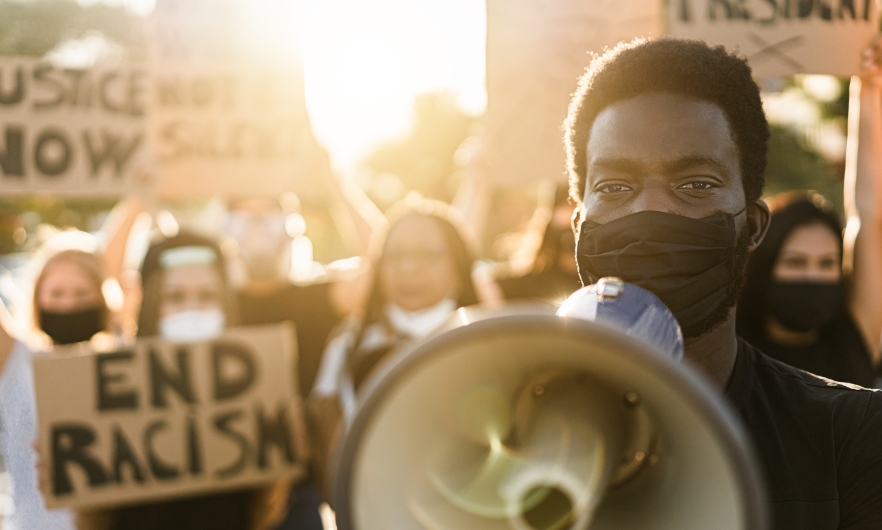
A New Humanism
The most important contribution of The Wretched of the Earth lay in its prophetic warning of the fate that might befall the African revolutions if the struggle for independence did not develop into a social revolution — one that would establish what Fanon called “a new humanism.” Fanon was a passionate supporter of national liberation through armed struggle, but not as an end in itself.
By taking the form of a national struggle, he argued, the Algerian movement had avoided racial exclusiveness, bringing together Arabs, Kabyles, and Black Africans — as well as those white Algerians who were willing to surrender their privileges. However, he predicted that these struggles would fall prey to the machinations of the national bourgeoisie, unless they made a rapid transition to the phase of social transformation after independence.
By this Fanon meant a vision of development that would stand in opposition to Western-style capitalism as well as the top-down Soviet model of industrialization. He wanted the revolutionary masses to create a decentralized society in which they would have effective and not merely nominal control of its economic and political processes. For this reason, he came to oppose the form of organization being adopted by virtually all of the African revolutions (including the Algerian one): “The single party is the modern form of the bourgeois dictatorship — stripped of mask, make-up, and scruples, cynical in every aspect.”
Fanon contrasted the rich capitalist countries, in which “a multitude of sermonizers, counselors, ‘mystifiers’ intervene between the exploited and the authorities” to prevent a head-on clash, with colonial states where “direct intervention by the police” would “ensure the colonized are kept under close scrutiny, and contained by rifle butts.” The experience of recent years shows that the gap between the colonized world of which Fanon wrote and countries like the US has narrowed considerably. The buffers between the authorities and the exploited in the US are rapidly dissolving, while the racist animus that has pervaded every stage of this country’s history is now manifesting itself on a level not seen since the reversal of Black Reconstruction.
In light of the failed and unfinished revolutions of the last century, what remains critical is Fanon’s idea that successfully uprooting oppressive economic and political structures also requires us to transform the most intimate human relations, beginning with the way that we perceive each other in a racialized society. As Raya Dunayevskaya once put it: “It is not the means of production that create the new type of humanity, but the new type of humanity that creates the new means of production.”
written by Peter Hudis
source: Jacobin magazine
